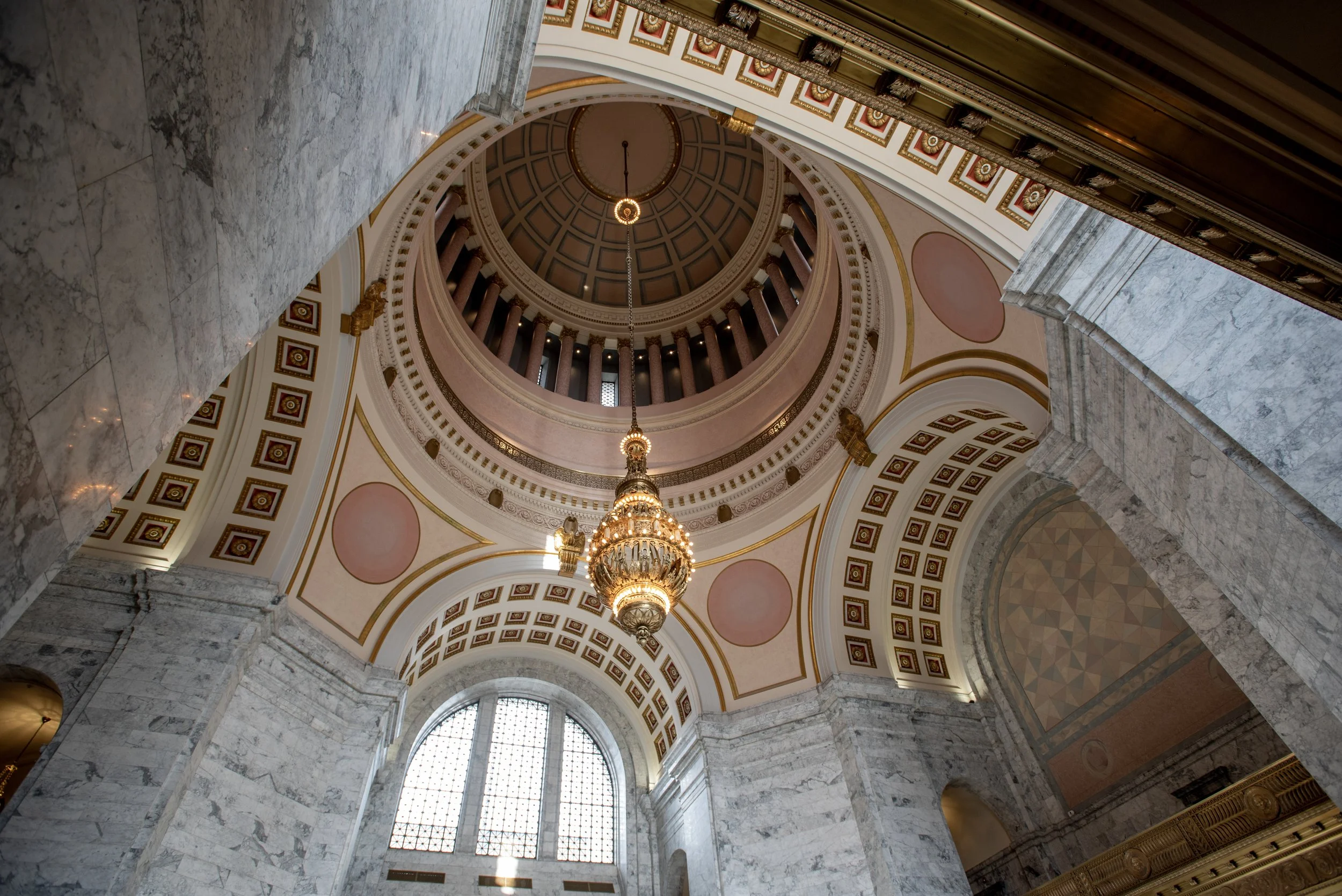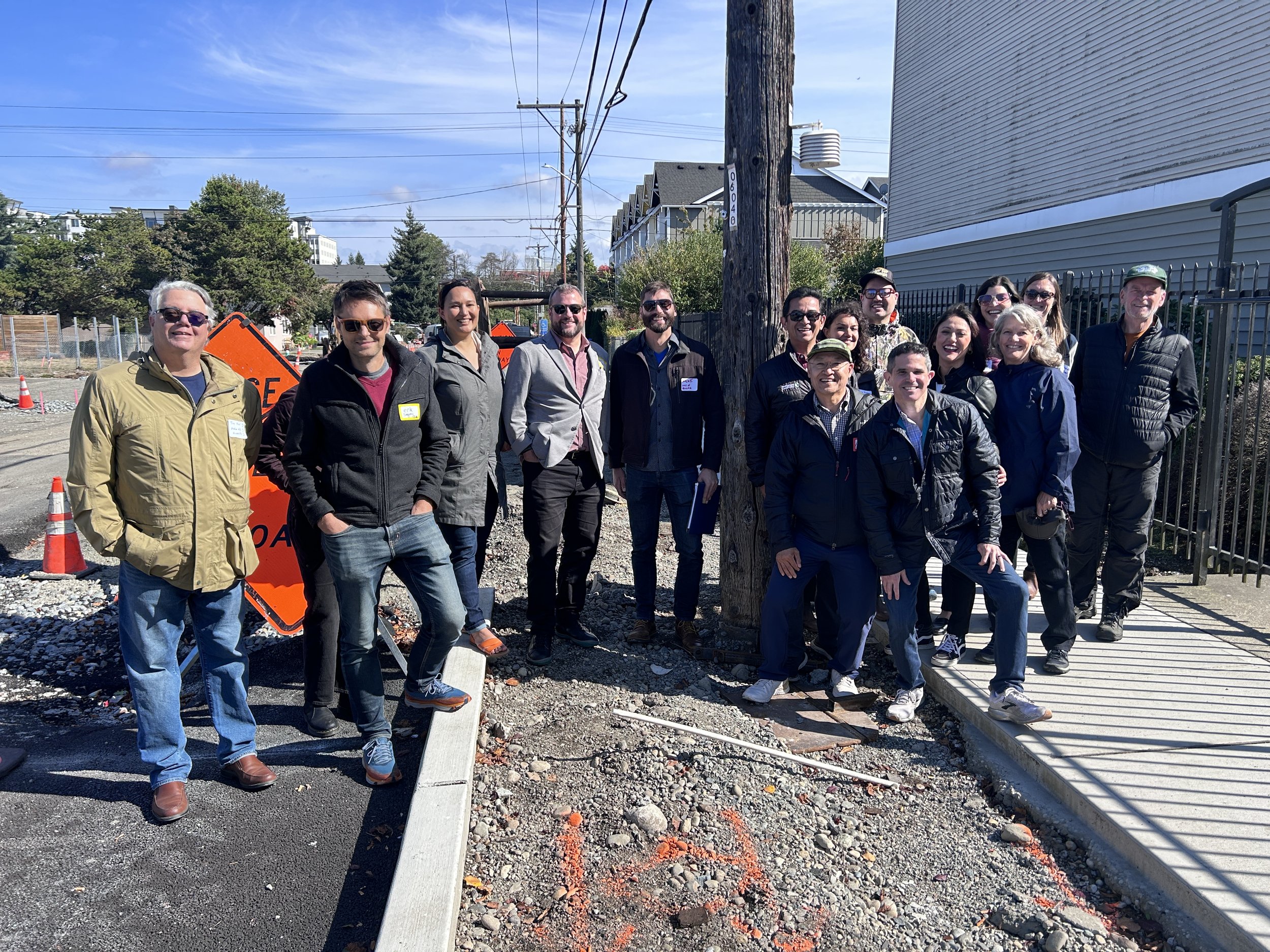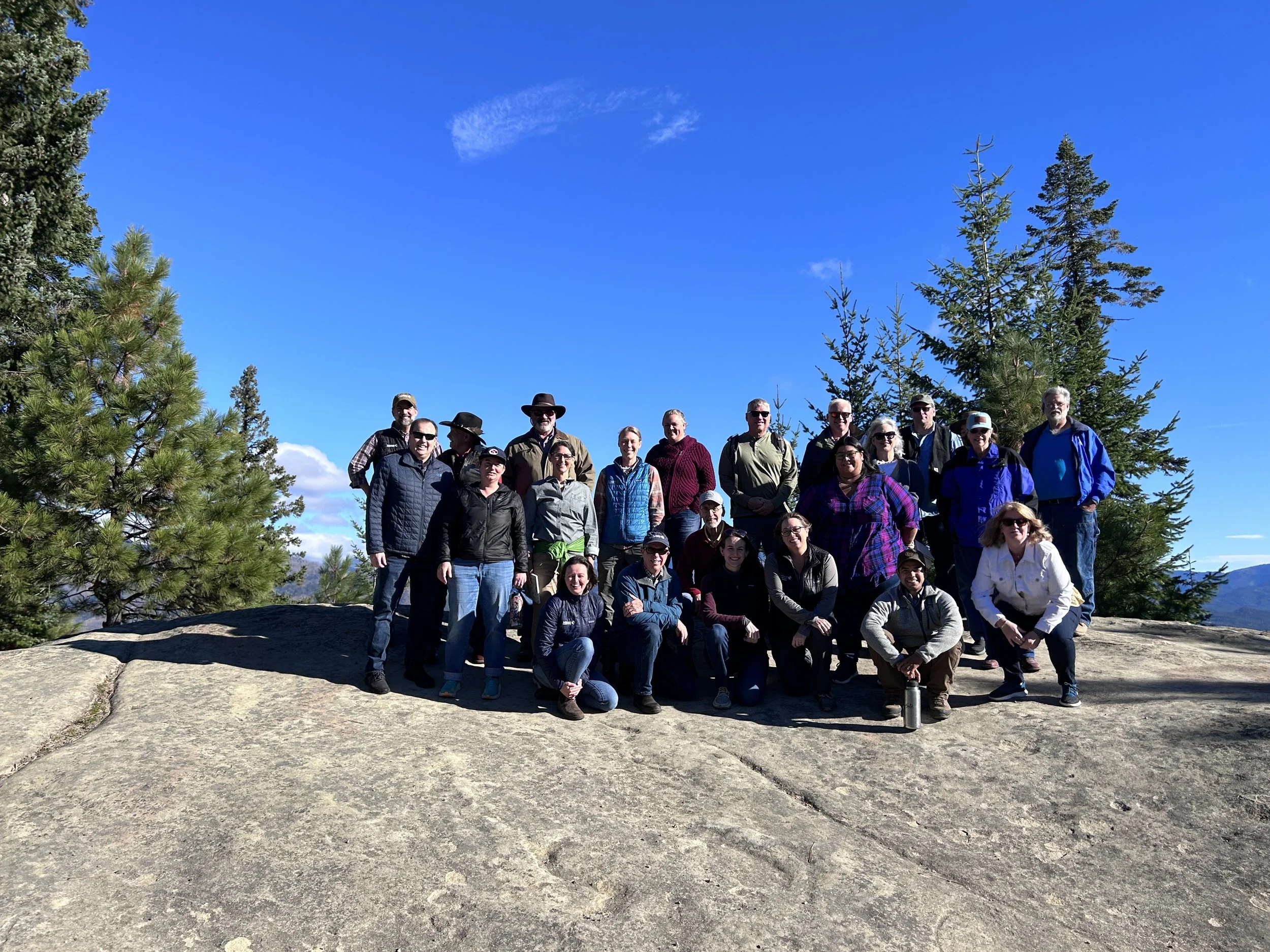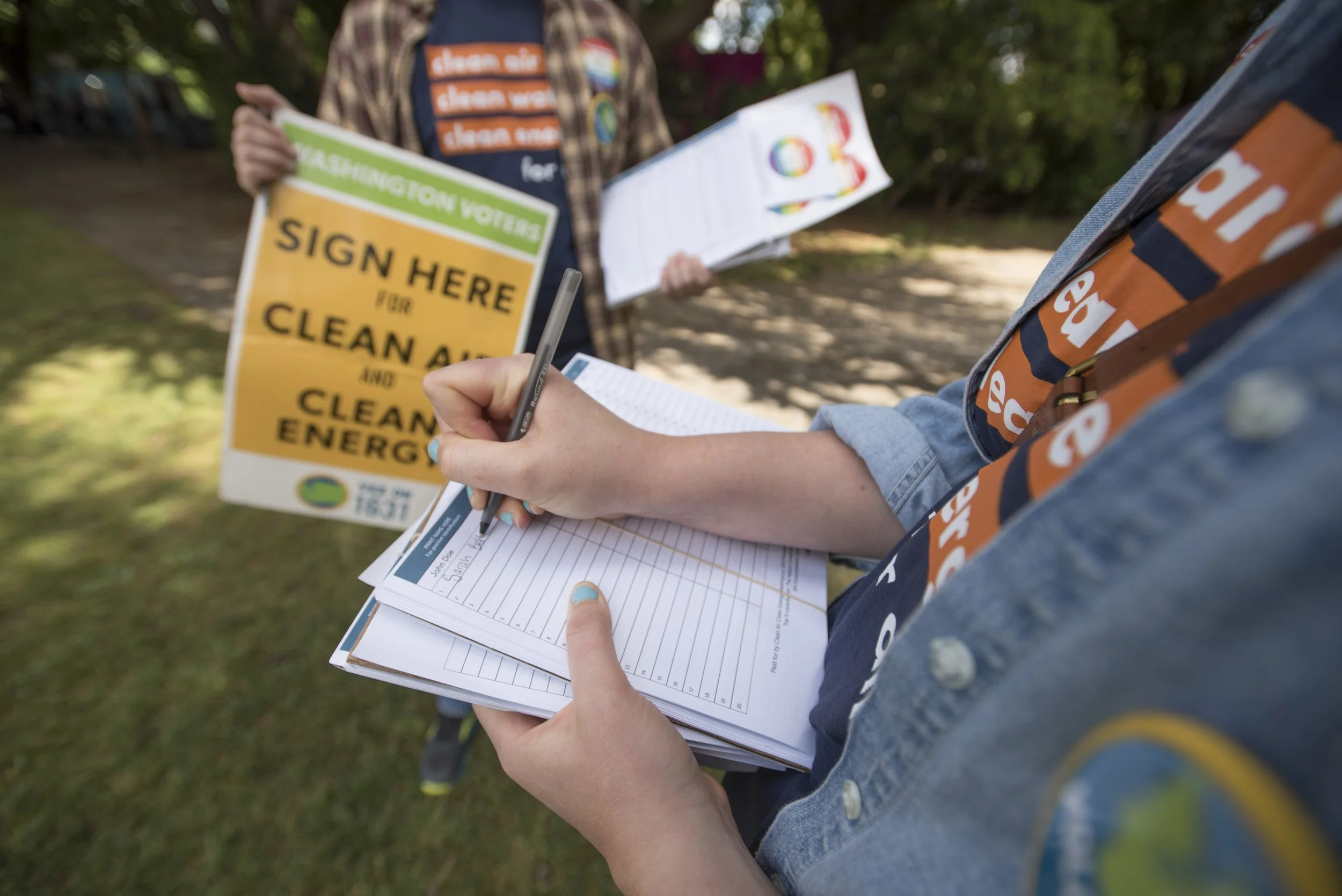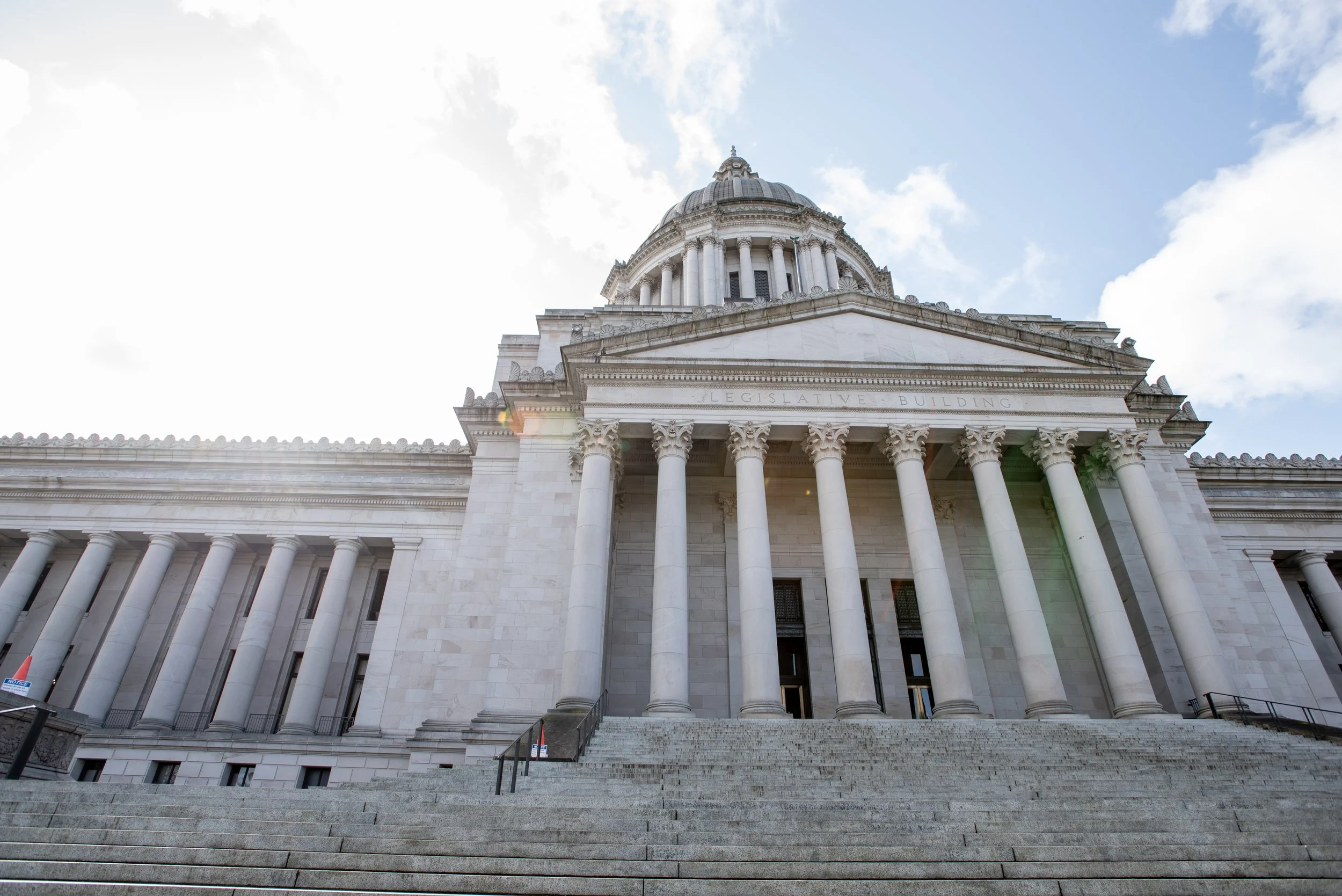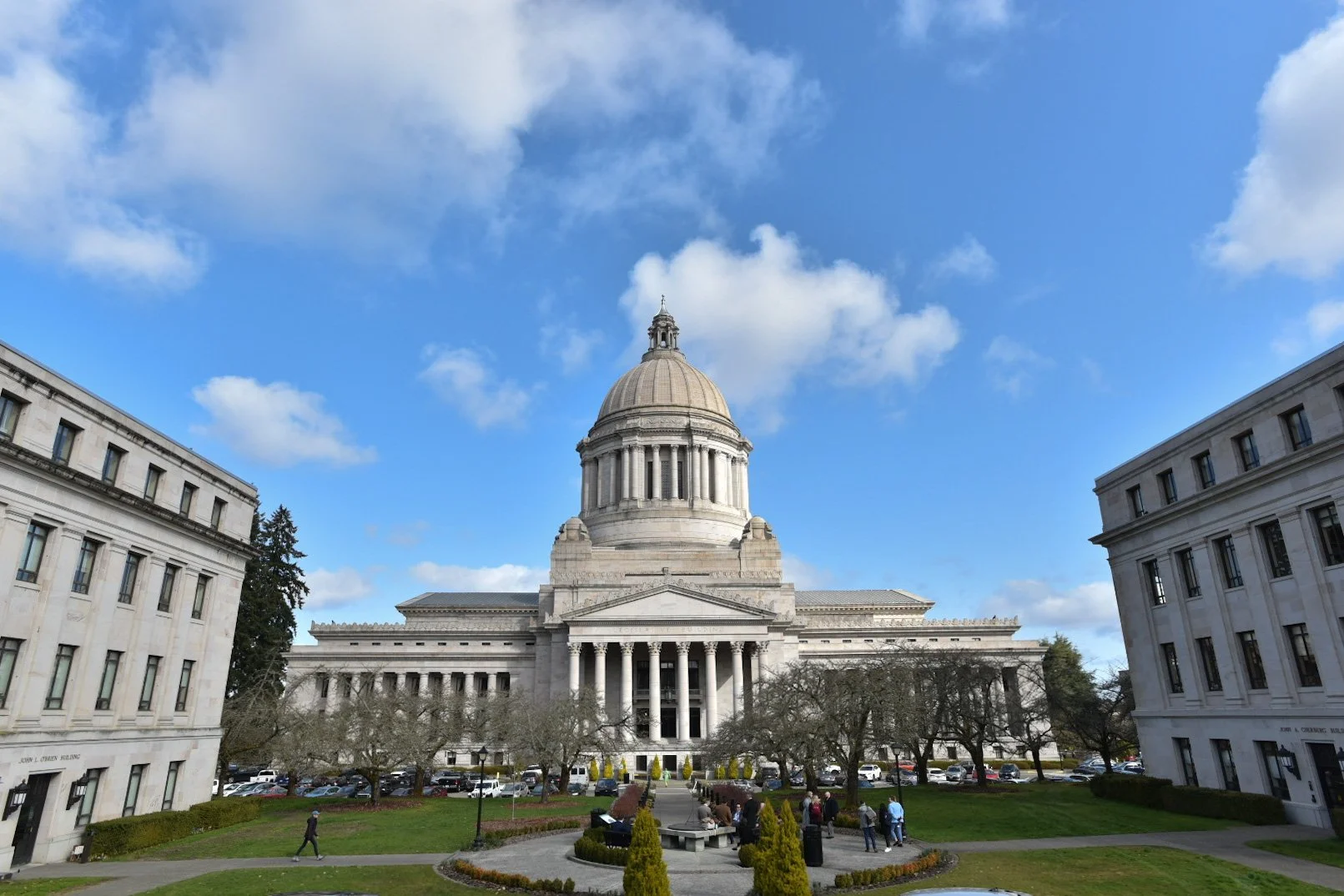UPDATE March 2:
As it was originally written, HB 1099, would ensure that Washington’s largest and fastest-growing communities are planning for the reduction of greenhouse gas emissions and vehicle miles traveled. HB 1099 also ensures that all Washington communities are planning for climate hazards like wildfires, drought, and sea-level rise and ensuring community resiliency.
Last night, HB 1099 passed out of the state Senate Ways and Means Committee. However, the bill was scrubbed of climate mitigation actions, removing requirements that our fastest growing communities reduce greenhouse gas emissions and vehicle miles traveled. It was scrubbed of the term “climate change” repeatedly.
We must address the climate crisis comprehensively, and this means both emissions reductions in addition to resiliency efforts. We cannot stress enough the urgency needed for action on climate change—evidenced in this week’s IPCC climate report, which lays out how quickly climate change impacts are accelerating and the shrinking window we have to act.
The current version of HB 1099 is not adequate to address the scale of the climate crisis and we are looking toward leadership in the Washington Legislature to restore the integrity of this bill.
It is imperative that HB 1099 pass the Senate so that we can restore the bill’s integrity in the final stage of the process with leadership from the House and Senate. Will you email your Senators to ask them to vote YES on HB 1099 so that climate change mitigation can be restored as a key element of updates to the Growth Management Act?
ORIGINAL POST Feb. 14:
As the climate changes, so should we. Thirty years ago, Washington state passed the Growth Management Act (GMA) to help our cities and counties accommodate rapid growth, while protecting what makes the Evergreen state a great place to live: working farms, healthy rivers and forests, vibrant cities, and a beautiful, mountainous rural landscape.
Today, Washington state faces a different landscape than it did 30 years ago. Record-setting heatwaves, devastating flooding, and more severe and frequent wildfires have shown us that climate change is at our doorstep. As we continue to reduce carbon emissions, we also must ensure we’re supporting building communities that are prepared to face our new climate reality. This year, the state Legislature has the chance to do just that by passing a crucial update to the GMA: HB 1099.
HB 1099 in the News
Our Environmental Priorities Coalition partner Futurewise has been leading the charge on passing this bill, which promises to provide strong protections for vulnerable communities in the face of climate change, while ensuring we have sustainable solutions in place to reduce our greenhouse gas emissions. It does this through a comprehensive approach to build resilient communities—from flood protection to transit, and clean water to wildfire prevention.
A farm in Carnation, Wash. © Hannah Letinich
Here’s what the update to the GMA should do:
Require the largest and fastest-growing counties and cities to choose from a list of actions developed by the Department of Commerce to reduce their vehicle miles traveled and greenhouse gas emissions to meet state goals
Require all counties and cities planning under the Growth Management Act to plan to address the impact of climate hazards on people, property and ecological systems
Include a definition of environmental justice in the GMA and stipulate that land-use planning should work to achieve environmental justice and not worsen existing environmental health disparities
Tackling carbon pollution
The way we collectively shape the way we live and move in our cities and towns can impact our pathways for carbon emission reduction. For instance, transportation accounts for 40 percent of Washington state greenhouse gas emissions. Last year, we helped enact policies that promote low-carbon fuel and electric vehicles in Washington, and reducing “vehicle miles traveled” (VMT) as our state grows is also an important “drawdown” strategy critical to achieving emissions reductions. There are numerous approaches that can reduce VMT, and HB 1099 tackles this challenge head-on, in the foundational community plans that shape our day-to-day experiences.
Building climate resilience
Alongside the work to reduce emissions, we must also focus on creating resilient communities by protecting areas against the worst effects of climate change. By identifying “hot spots” where disasters are more likely to occur in the coming years, communities will be better able to develop strong hazard resilience plans, which can reduce the impacts of flooding, wildfires, droughts, and rising sea levels in Washington state.
Stillaguamish Valley flooding near Stanwood, November 2015. Photo by Julie Morse /TNC
Flood planning
This winter has once again made evident that flooding is a reality for Washington, and climate change is increasing flood risk for communities, farms, and aquatic habitats. Building up our networks in Floodplains by Design, we successfully secured a requirement in HB 1099 that voluntary flood-hazard planning needs to consider increased storm severity, sea-level rise, and other climate change impacts. Communities can then use either these smarter state flood plans and Federal Emergency Management Agency money to create smarter National Flood Insurance hazard plans to comply with HB 1099. This better aligns all the planning resources and incentives so that communities can be climate-smart in the face of flood risk.
A foundation of funding
The federal Infrastructure Investment and Jobs Act included $50 billion in competitive resilience funding, which would allow local communities to apply for federal dollars to help address the cost of implementing these climate resiliency plans.
The Department of Commerce has also laid the groundwork for creating the programs necessary to implement the bill, thanks to the passage of a budget proviso last session. However, in order to impact the Central Puget Sound 2024 comprehensive planning process, HB 1099 must be passed this year.
Continuing to be a climate leader
We are proud of the work Washington has done to lead the nation on climate action, but we can’t stop now. HB 1099 passed out of the House with resounding support, and now we must call on the Senate to do the same. Urge your Senator below to vote yes on HB 1099, for building climate resilient communities while reducing greenhouse gas emissions.




